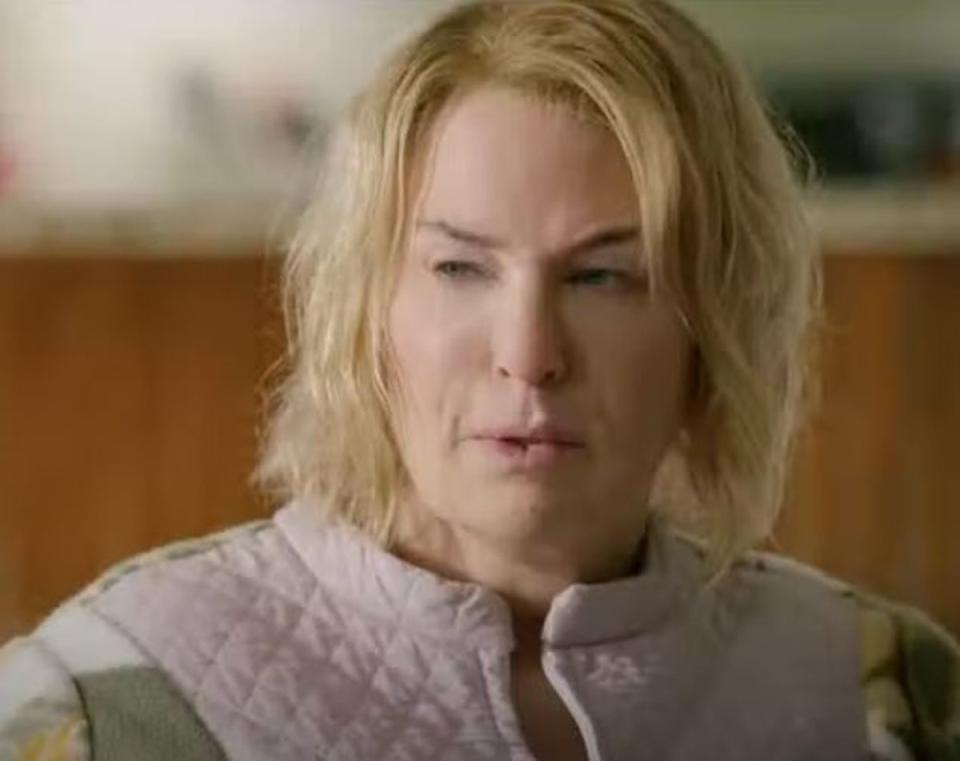Her mother was found stabbed to death. Now she’s using TikTok to stop Hollywood glamourising her death

Mariah Day was 17 years old when her cancer-stricken mother Betsy Faria was found stabbed to death in her Missouri home in 2011.
Her stepfather Russ Faria was arrested for the murder the next day, falsely convicted at trial, before being acquitted at retrial in 2015 after spending four years behind bars.
The details will be familiar to many due to the NBC dark comedy series The Thing About Pam, in which Renee Zellweger plays Mr Faria’s former friend Pam Hupp, who was last summer charged with her murder.
What might not be so apparent is the impact on Ms Day of losing both of her parents while still in high school, then having to face years of court cases, intense media coverage, in a case that split the community in her hometown Troy.
Ms Day told The Independent that she spiralled into dark hole of grief and depression after her mother’s death, turning to alcohol and prescription pills to numb the pain.
“I didn’t cope in the healthiest way,” Ms Day tells The Independent.


Hupp had been a key state witness in Russ Faria’s first trial, as a succession of prosecutorial mistakes meant she was overlooked as a suspect.
This was despite her convincing Betsy to make her the sole beneficiary of a $120,000 life insurance policy, and being the last person to see her alive. Hupp is awaiting trial for Betsy’s murder, and is serving a life prison sentence for the 2016 murder of Louis Gumpenberger.
Media coverage of the case focused on Hupp’s strange behaviour on the witness stand and in police interviews, and was extensively covered by NBC’s flagship current affairs show Dateline. It was later turned into a podcast and then the TV series The Thing About Pam, that first aired earlier this year.
Ms Day said she was approached by an NBC staffer about a year ago to say they were interested in making a “mini docuseries” about the saga, and was led to believe it would focus more on her mother, a beloved DJ who enjoyed travelling and striking up conversations with strangers.
Instead, her family were reduced to minor characters, while her mother’s alleged murderer took centre stage, played by a Hollywood A-lister hamming it up in a fat suit.
She and her sister Leah could only watch the first few episodes before turning it off in disgust.
“I thought ‘is this really happening?’ There were lots of mistakes, factual errors and over dramatisation,” she told The Independent.
Her criticism of errors and the show’s derisive tone was echoed by a former police officer who investigated the murder, who told The Independent in April that the production was “despicable”.
“It’s like they were mocking what we went through,” Ms Day said.
“They tried to make it seem like it was very bizarre, but it was our lives that they were playing with.”
An experience that had caused her PTSD, nightmares, anxiety and depression had been recast as an amusing tale of an oddball killer for the entertainment of others.
Ms Day resolved to reclaim the narrative about her mother’s tragic death in a series of posts on TikTok.
The often confronting clips, which have collectively racked up more than a million views, give a searing insight into her grief, and through them Ms Day discovered an online community that share her distaste for the insensitive nature of some true crime shows.
“I was thinking is it just me being so close to the story? But there are so many others who told me they had to turn it off because of how disrespectful it was,” she told The Independent.
Ms Day said she was amazed by the largely positive response to her TikToks.
“My sister and I have been put down so much through social media by people who thought we turned on our stepdad. I never imagined finding such a support system on TikTok.”
She started using the hashtag #ethicaltruecrime, and say that the makers of podcasts and TV series need to rethink their approach to the genre to put the victims and their families front of mind.
NBC did not respond to a request for comment.
In a recent statement to Buzzfeed, a spokesperson said the show was a fictionalised show based on true events.
“Since the inception of the project, it has been a top priority of the creative team to honour the spirit of the story while also treating the real people impacted – many of whom shared their experiences as part of this process – with sensitivity and respect.”
The response fell flat for Ms Day.
“We constantly have to see (Hupp’s) face everywhere and see her name everywhere, rather than the lives she took. We are real people. We have to deal with people knowing that it’s our trauma out there.
“It would be nice for them to show more respect when they’re creating the show.”
Ms Day has started advocating on behalf of other victims, and is making her first public speaking engagement at the True Crime Podcast Festival in Dallas this weekend.
She says that fans of true crime have a big part to play in forcing journalists and networks to rethink their approach to the genre.
“If it feels gross and disrespectful to the families, then turn it off. If we keep giving these people views or ratings, they’re just going to keep on making them.”
“We’re trying to get to a place where ethical true crime can be a thing.”
Now 28, and a mother of a three year old son and five month baby girl, Ms Day said she has learned to deal with the pain.
“Now I have a better support system, I’m a mom now, my kids keep me grounded. I’ve had to discover healthy coping mechanisms by myself.”

 Yahoo News
Yahoo News 